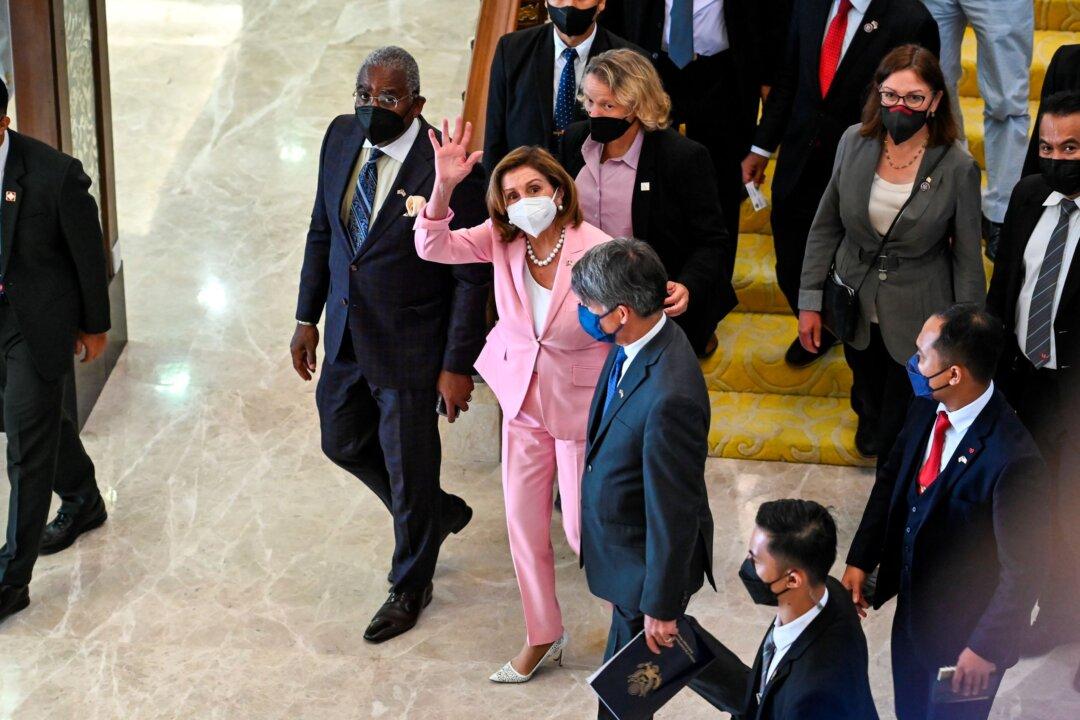TAIPEI, Taiwan—With uncertainty over whether House Speaker Nancy Pelosi will visit Taiwan during her Asia trip, the Chinese communist regime has decided to intimidate the self-ruled island both militarily and economically.
Local media in Taiwan reported on Aug. 2 that Chinese customs officials announced a temporary ban on food imports from more than 100 Taiwanese companies overnight. Among those facing the ban are companies in the snack food and agricultural industries.





